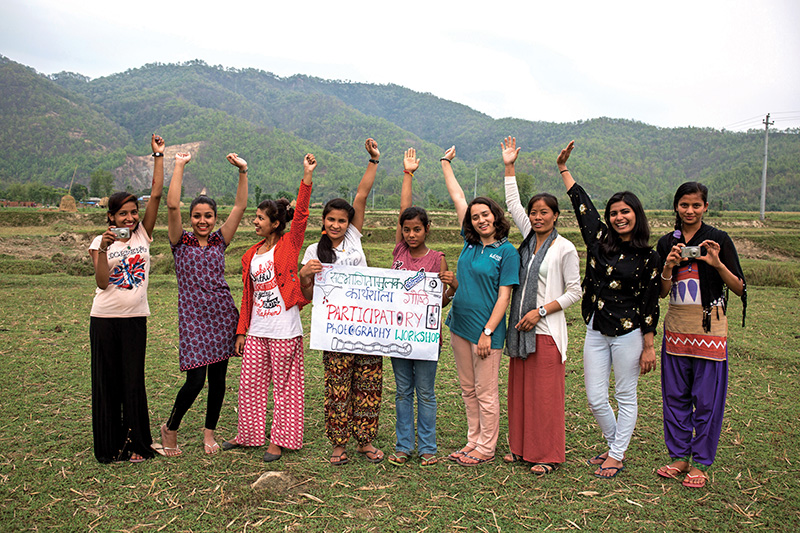Stories of menstruation: Retold
A year after taking part in a photography workshop, seven teenage girls know more reasons than ever why menstruation is a subject to be celebrated, and not stigmatised
KATHMANDU: In April, 2016 WaterAid Nepal conducted a participatory photography workshop with seven teenage girls, aged between 14-16 years with an objective to allow them to explore their lives and express how they felt during their menstruation with the help of photography. Incorporating innovative process such as visual literacy made a direct impact on the lives of these girls along with their family members and society. A year later we went to the same group of girls in Sirthauli, Sindhuli to follow up on their status quo whilst trying to bring out the same voices, once again handing over cameras to them and asking them to explore more with cameras and retell their stories of menstruation.
After spending weeks learning and reassessing their photographic skills, girls started taking photographs and disseminating their feelings. As a result, the photographs taken retell the stories of menstruation the girls were facing, changes they experienced over the period of one year and the sense of empowerment and confidence they had developed. The final step in the process was yet to be incorporated — ‘story writing’.
Manisha had a really hard time convincing her family members about the issues on menstruation. Despite her constant effort to change the perspective of her family members, she has not been successful. She expressed her unhappiness when she shared with us that her grandfather will not eat
anything if she touches food during menstruation. She also expressed her dissatisfaction for not being able to do what she wants while she is menstruating. But, no matter how tragic her experience sounds, she is committed to start that change from herself.
Thus she shares, “I have tried many times and I have failed to bring that change in my house. However, I am committed to change all of this for my future generation. I promise my children will never have to go through all these restrictions and differences that I went through. Menstruation is a
natural process and we need love, care, nutrition and support during this time, not hate and segregation. I’ll make sure I’ll change that.”
Life for these girls has changed a lot in terms of what they experienced versus what they witnessed as the changes in this process. As an innovative intervention to express their feelings — photography gave them power, a medium to express and challenge the status-quo on an issue that is heavily stigmatised by society. They emerged out of their comfort zone, unlearned everything about taboos associated with menstruation — which was actually a part of socialisation process and then inherited independence. These girls have developed an impeccable decision making skill in the process. They now know exactly what’s wrong and what is right. They know more reasons than ever why menstruation
is a subject to be celebrated and not stigmatised.
(The author is Communications Support Officer at WaterAid Nepal)






